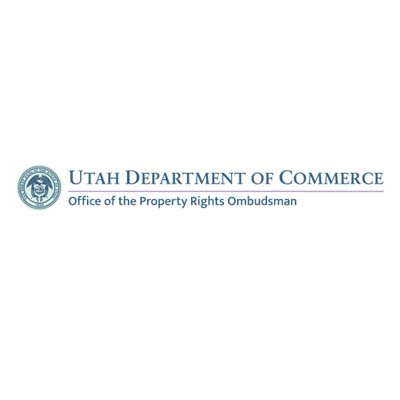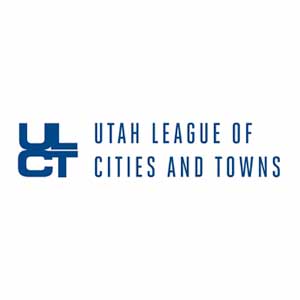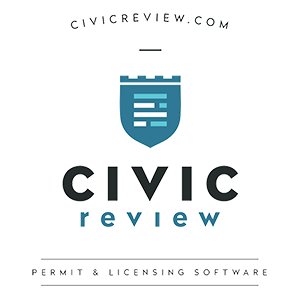The Office of the Property Rights Ombudsman
April 21, 2022 by Nicole Masson
Policy/Legislative
The Office of the Property Rights Ombudsman is a neutral, non-partisan office in the Utah Department of Commerce that protects the property rights of the citizens of Utah. The Office assists citizens and government agencies in understanding and complying with property rights laws, resolves disputes, and advocates fairness and balance when private rights conflict with public needs.
Frequently Asked Questions
The Ombudsman Office is a neutral, non-partisan state agency, and does not represent individual parties. The Office can assist with problems through advising, or by resolving disputes through education, negotiation, mediation, arbitration, or advisory opinions.
The Office is a division in the Utah Department of Commerce, and is established by state statute. It currently is staffed by three attorneys who are knowledgeable in eminent domain, takings, and land use law–Jordan Cullimore, Marcie Jones, and Richard Plehn. Oversight of the Office is provided by the Land Use and Eminent Domain Advisory Board, a seven-member body comprised of public and private stakeholders appointed by the Governor.
The OPRO helps citizens and government officials with matters related to takings, eminent domain, and land use law in several ways, including resolving disputes through education, negotiation, mediation, arbitration and Advisory Opinions.
- Inform and Educate: The OPRO can answer questions, explain the law and legal processes, and review options available to solve and avoid problems.
- Negotiation: The Ombudsman can be a liaison between property owners and local or state officials to discuss a matter or potential dispute. The Office will attempt to help everyone understand the perspective of the others involved, and try to find an objective resolution. The involvement of the OPRO also helps minimize the impact of strong personal feelings.
- Mediation: The Ombudsman can convene a meeting with the parties, and facilitate settlement discussions. By doing so, the OPRO will assist all parties to evaluate facts and issues and reach a resolution to the dispute.
- Arbitration: At the request of the property owner, the Ombudsman can arrange arbitration, and require the condemning entity to participate. A neutral third party decides the matter, after considering the positions of all parties.
- Advisory Opinions: The OPRO can research specific issues of land use law, and prepare an Advisory Opinion that attempts to resolve the dispute in accordance with the prevailing law.
The Office’s mandate is to help resolve disputes between private citizens and state or local government entities. Therefore, the Office typically is not involved in disputes between private property owners except in very limited circumstances. (e.g., when a private party has condemnation rights under state law). However, do not hesitate to contact the OPRO with questions. We will provide as much information as we can to assist you.
This article was originally published in The Urban Lawyer in 2010. It explains the history and function of the Office of the Property Rights Ombudsman.
Land Use and Development
One of the most important rights associated with property ownership is the ability to adapt or develop it for some profitable or desirable use. Development and use of property supports economic growth and contributes to the public welfare.
In this Section, you will find some basic information about Land Use and Development. The Office of the Property Rights Ombudsman helps parties understand and comply with these laws and can help resolve disputes between governments and property owners.
If you have specific questions, please contact an attorney in the Ombudsman’s Office to discuss your matter in more detail.
Land Use and Development regulations and protections are also discussed in the Find The Law section.
All property is subject to reasonable control and regulation by government entities. Local governments regulate the uses and improvements of property to protect and promote the health, safety, and welfare of the public. Proper zoning ordinances promote economic growth and help maintain strong and vibrant communities.
Any citizen may petition their local government to consider a change to zoning ordinances. Local governments have wide latitude to adopt and amend zoning ordinances as a part of their authority to promote the public welfare. Unless it can be shown that the zoning ordinance does not advance the general welfare, or that the ordinance violates constitutional rights or some other controlling statute, the regulation will be upheld.
Local governments are required to follow their ordinances and apply them consistently. If you believe a local government has not done this, please give us a call to discuss your options. We may assist you in resolving the matter through education, negotiation, mediation and arbitration. Be aware that if you want to appeal any local government’s land use decision, you must strictly comply with the deadlines set forth in local law.
Local governments must process and decide on development applications within a reasonable time. The amount of time depends upon the specific circumstances, including the complexity of the application, the local government’s staffing levels, and the number of applications being considered. If a reasonable amount of time has passed, an applicant may request that the government issue a decision within 45 days.
The Vested Rights Rule provides that an applicant for subdivision approval or a building permit is entitled to approval if the application is complete, and complies with the zoning requirements in place on the date the application is submitted. Put simply, the vested rights rule means that the government cannot change the zoning rules after an application is filed.
A local government may require dedication of property (this requirement is called an “exaction”) as a condition to approving a development provided that: (a) an essential link exists between a legitimate governmental interest and each exaction, and (b) each exaction is roughly proportionate, both in nature and extent, to the impact of the proposed development. Determining whether an exaction is proper is highly dependent on the specific facts of the particular situation and we encourage you to contact the OPRO to discuss your situation so we can be of most help to you.
Local governments may charge reasonable fees to process an application for a new development. Fees for review of building plans are limited to the lesser of the actual cost to the government to review the application, or 65% of the amount charged for a building permit. Other review fees must be reasonable, and an applicant may request an itemized list showing how the fees were calculated. In addition, a government may charge fees for connecting to utility services.
Impact fees are one-time charges on new development to help raise revenue for expansion of public infrastructure and facilities necessitated because of the development. Local governments must comply with the procedures and standards of the Impact Fees Act in order to charge any impact fee. Determining the validity of an impact fee is fairly complex and highly dependent on the specific facts of each particular situation, so we encourage you to contact the Ombudsman to discuss your situation so we can be of most help to you.
Any aggrieved party may participate in public hearings concerning proposed developments. Notices of public hearings are available at local government offices or websites, in certain other public places, and in local newspapers. There are some “routine” zoning decisions or interpretations of a zoning ordinance and certain other matters that are made without a public hearing. Any aggrieved party may appeal a final decision on a proposed development.
Some property uses are designated as “conditional” because they have unique characteristics that make the use incompatible in some areas or compatible only if conditions are imposed to mitigate detrimental impacts. A land use authority must approve a conditional use if reasonable conditions mitigate the detrimental effects of the proposed use in accordance with applicable standards. If the detrimental effects cannot be mitigated by reasonable conditions, the conditional use may be denied. Conditional Uses are discussed more fully in the Find the Law Section.
A variance is a modification of a zoning requirement needed because some unique aspect of a particular parcel makes strict application of the requirement burdensome or unfair. Variances may be granted to adjust zoning standards like setbacks or height limitations. Variances are discussed in greater detail in the Find the Law Section.
Division of real property is governed by state statute and is most often requires approval by a local government. Often, a “minor” subdivision, where only a few new lots are created, is rather easy to complete. “Major” subdivisions may include expansion of public utilities and roads, so the approval process can be more complex. Your local government should be consulted for more specific guidance on creating a subdivision. It is important that any division of property—no matter how minor—comply with state law and local ordinance, or it is invalid. If you have questions about subdivisions, please do not hesitate to contact our office.
In general, decisions of local governments that impact property owners may be appealed by whoever applies for the land use. In some cases, neighboring property owners and other aggrieved parties also have the right to appeal. Local ordinances, state statutes, and even federal laws affect appeal rights. If a statute or ordinance requires that an appeal be heard by an administrative body before it can be filed in district court, that procedure must be followed. In most land use decisions, the deadline for filing appeals is very short, and it is vitally important that deadlines are not missed. Once the deadline passes, the right to appeal is usually lost, even if the land use decision is incorrect. The safest course is to consult an attorney or the Ombudsman as soon as possible once the decision is issued. Appeals are discussed more fully in the Find the Law section.
The Office of the Property Rights Ombudsman may prepare an Advisory Opinion on specific land use questions. For more information on advisory opinions, please visit the About Advisory Opinions section of our website.
The Office of the Property Rights Ombudsman is a neutral, non-partisan state office and does not represent any party in a dispute. While the Office does not represent individual parties, it can assist in resolving disputes with a local government related to a land use or development matter through education, negotiation, mediation and arbitration. Please give us a call so we can determine how our office can best assist you.
The Ombudsman primarily assists in disputes between private citizens and state and local government entities. The Office typically does not get involved in disputes between private property owners except in certain very narrow instances (e.g., when a private party has condemnation rights under state law). However, do not hesitate to contact the OPRO with questions, and an attorney in our office will let you know how we can best assist you.
Please call the Ombudsman and we will help you. The OPRO is engaged in land use related law every day, and we use that experience to assist all parties to obtain their objectives while protecting property rights. Moreover, under Utah law, the Office has a duty to assist and educate both governments as well as property owners. You may request training or simply discuss a specific question.
Recent News
- » Planning In The News: Will Utah home prices drop as a result of the ‘silver tsunami’?
- » 2024 APA UT Spring Conference: Cedar City, UT. The Call For Sessions is Currently Open.
- » Planning in the news: Living in Daybreak- What residents say the Utah community is really like
- » Planning In The News: Planning Commission green lights proposed ban on gas stations near waterways and parks
- » As states argue over who should cut their Colorado River use, a new plan puts the environment first
- » Developer planned the demolition of the historic Fifth Ward meetinghouse
- » Long-awaited ‘River Tunnel’ at SLC Airport gets sneak peek

































